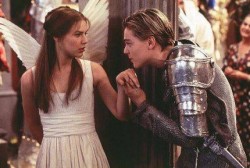Yvonne Griesel, Übersetzerin der gemeinsamen Inszenierung von SumSum² des Theaters Erlangen und Teatr Pokoleniy, St. Petersburg, wird am Zentrum für Translationswissenschaft der Universität Wien u.a. über ihre Erfahrungen in diesem Projekt berichten! Der Vortrag mit dem Titel “TranslatorInnen im Internationalen Theater – auf, hinter und neben der Bühne” widmet sich der anspruchsvollen Rolle, die Übersetzer/innen im internationalen Theater zukommt und untersucht Herausforderungen und Lösungsstrategien für Übertitelung, Simultanübersetzung und Dolmetschen auf den Bühne. Themen, mit denen sich auch Petra Kohse in ihrem Spotlight Lost in Translation. Multilingualism and Theatre beschäftigt hat. Wer die Gelegenheit hat, sollte unbedingt vorbeischauen. Wir freuen uns über eure Berichte, Reaktionen, Eindrücke!
Hier die genauen Daten:
Gastvortrag Dr. Yvonne Giesel “TranslatorInnen im Internationalen Theater”
Zeit: Dienstag, 24. Mai 2011, 15:30 bis 17 Uhr
Ort: Universität Wien, Zentrum für Translationswissenschaft, HS 2, Gymnasiumstrasse 50
weitere Informationen unter transvienna.univie.ac.at.

There are differenct ideas of what a classical topic might be. Film still from "Romeo and Juliet" by Baz Luhrmann, 2006.
In our first spotlight in August 2010, Petra Kohse reported on multilingualism on stage and examined how theatres chose to convey it. In this next spotlight, I’d like to look at what exactly is being conveyed (or not) in those surtitles, subtitles, paraphrases and simultaneous translations. Which topics of mutual interest have the theatres in the Wanderlust Fund chosen for their co-productions? Are the themes global or rather local in scope? Does their intercultural experience, which they’ve gained behind the scenes, also “play a role” on stage? Do they revert to classical pieces as a foil to examine cultural differences? Do they commission playwrights or do they, the actors, dramaturges and directors, develop their own material from research and improvisation? Which forms are over- or underrepresented in comparison to the theatres’ regular programmes?

There it was again, this time at the HAU in Berlin for a guest performance of Jan Klata’s “The Promised Land” by the Polski Express from Wrocław – that good, old simultaneous translation piped in over earphones. At the cloakroom you swapped your ID for the device, switched it to the right channel, stuck in an earbud, letting the other one hang down (in order to hear what they said on stage), and then hoped it would work. Hoped, that is, that the translator’s voice (Agnieszka Grzybkowska’s at the HAU) would be so unobtrusive and intrinsic to the performance that it could be perceived as a natural processing station for all that was said en route from the stage to the brain. It’s best when she (for some reason, the translator always seems to be a she) is not a native speaker of German, but has a slight accent from the country where the play originates. Ever since I watched the guest performance of Lew Dodin’s small-town saga “Brothers and Sisters” by the St. Petersburg Maly Teatr at the Theater der Welt festival in Hamburg in 1989, I’ve associated world theatre with this useful, monotone, charmingly accentuated voice in my ear that makes me feel I’ve listened to (and understood) the real-time dialogue on stage. Compliments to those simultaneous translators!

There is an exercise that is mostly used as an Ice Breaker, where two strangers sit in front of each other, describe each other precisely and then fantasize about each others life. Within the last week that the Indian collegues have come to Mannheim, this exercise has started to take up more and more workshop time and crept into leisure time, we find doing it in the tram and sometimes even missing the station. We have spent a week of getting to know each other, which happend while wokshopping, walking, changing hotels, dragging extremely big suitcases with saris all over the place, watching plays and swimming. Language does play a huge role – in the workshop and in the rest of our time. The actors Shrunga and Pallavi say “Danke” and “Leitungswasser” and in the workshop we listen to the actors speak in Kannada, Russian, Spanish, Swiss German, French, Kannadised English, Russian sign language and creative Bharat Natyamised Pantomime – as of today I know what jogging looks like in Bharat Natyam (a classical Indian dance form).
crept into leisure time, we find doing it in the tram and sometimes even missing the station. We have spent a week of getting to know each other, which happend while wokshopping, walking, changing hotels, dragging extremely big suitcases with saris all over the place, watching plays and swimming. Language does play a huge role – in the workshop and in the rest of our time. The actors Shrunga and Pallavi say “Danke” and “Leitungswasser” and in the workshop we listen to the actors speak in Kannada, Russian, Spanish, Swiss German, French, Kannadised English, Russian sign language and creative Bharat Natyamised Pantomime – as of today I know what jogging looks like in Bharat Natyam (a classical Indian dance form).

Zum zweiten Treffen der Wanderlust-Theater am 25. und 26. April 2010 am Oldenburgischen Staatstheater
Es herrschte Klassentreffen-Stimmung, als sich am vergangenen Wochenende Intendanten, Dramaturgen und Projektleiter der Wanderlust-Theater am Oldenburgischen Staatstheater zum zweiten Wanderlust-Treffen zusammenfanden. Das Staatstheater lud zeitgleich zum PAZZ Festival ein und präsentierte aktuelle Theaterproduktionen nicht nur aus ganz Deutschland, sondern auch aus Großbritannien, Österreich, der Schweiz, Belgien, Kanada und Portugal. Internationales Flair herrschte in der sonst eher beschaulichen Stadt – ideal für unseren Austausch über die internationalen Theaterkooperationen des Fonds Wanderlust.





 Pfadfinder
Pfadfinder Spotlight
Spotlight

